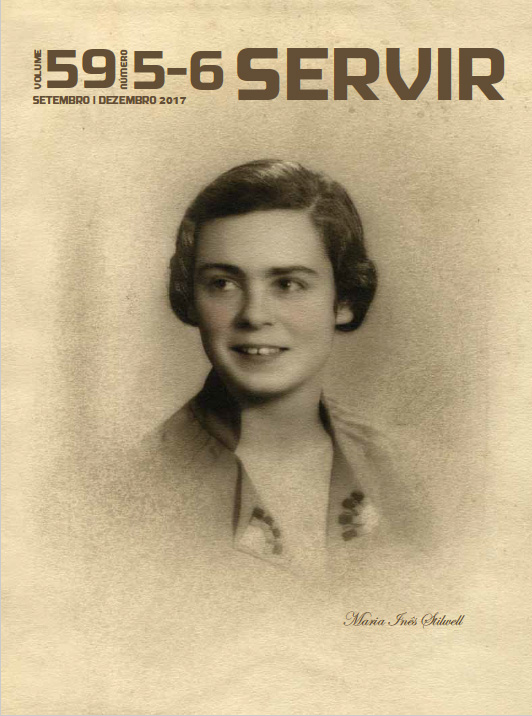The recovery of selfcare
nursing focus
DOI:
https://doi.org/10.48492/servir025-6.23322Keywords:
Selfcare, Nursing, RecoveryAbstract
Scientific research and dissemination about the influence of nursing on the transitions of the person associated with self-care dependence and its role in health recovery has been increasing.
Objectives: To identify the role assigned to the nurse in the recovery of self-care.
Method: Systematic review of the literature where we chose an electronic search method for articles on EBSCOHOST with the keywords self care, recovery and nursing role. The articles were analyzed and evaluated by 3 independent readers and there was concordance in the selection of articles.
Results: 13 articles that had been published since 2008, written in Portuguese, English and Spanish were selected, and had access to a complete article, each of which identifies Nurses as a crucial link in their capacity for recovery.
Conclusions: The Nurse, while knowledgeable about the physiological changes resulting from the aging process, must be prepared to identify self-care deficits resulting from the individual’s life, allowing an early action and facilitating the recovery process.
Downloads
References
Berg, K., Arested, K. & Kjellgren, K. (2013). Postoperative recovery from the perspective of day surgery patients: A phenomenographic study. International Journal of Nursing Studies, 50, 1630–1638. Acedido maio, 01, 2015, em: https://pubmed.ncbi.nlm.nih.gov/23726224/
Bernard, H. & Foss, M. (2014a). Patient experiences of enhanced recovery after surgery (ERAS). British Journal of Nursing, 23 (2), 100-106. Acedido maio, 01, 2015, em: https://pubmed.ncbi.nlm.nih.gov/24464115/
Bernard, H. & Foss, M. (2014b). The impact of the enhanced recovery after surgery (ERAS) programme on community nursing. British Journal of Community Nursing, 19 (4), 184-188. Acedido maio, 01, 2015, em: https://pubmed.ncbi.nlm.nih.gov/24893553/
Boyd, C. [et al.]. (2008). Recovery of Activities of Daily Living in Older Adults After Hospitalization for Acute Medical Illness. Journal compilation, The American Geriatrics Society, 56, 2171–2179. Acedido maio, 01, 2015, em: https://pubmed.ncbi.nlm.nih.gov/19093915/
Burton, C.R. (2000). A description of the nursing role in stroke rehabilitation. Journal of Advanced Nursing, 32, 174–181. Acedido abril, 24, 2015, em: https://pubmed.ncbi.nlm.nih.gov/10886449/
Doran, D. (2003). Functional Status. Nursing-Sensitive Outcomes: state of the science. Canada: Jones and Barlett Publishers 8 Alligood, M.R. (2014). Nursing Theorist and their work. (8ª Edição). Missouri: Elsevier Mosby. ISBN 978-0-323-09194-7. 9
Doshi, H., Ramason, R., Azellarasi, J., Chan, W. & Naidu, G. (2014). Functional improvement of self care in the elderly after hip fracture: is age a factor? Arch Orthop Trauma Surg, 134, 489 – 493. DOI 10.1007/s00402-014-1924-9. Acedido maio, 01, 2015, em: https://pubmed.ncbi.nlm.nih.gov/24464301/
Fecher-Jones, I. & Taylor, C. (2015). Lived experience, enhanced recovery and laparoscopiccolonicresection. British Journal of Nursing,24(4)223-228.Acedido maio, 01, 2015,em: https://pubmed.ncbi.nlm.nih.gov/25723267/
Foss, M. & Bernard, H. (2012). Enhanced recovery after surgery: implications for nurses. British Journal of Nursing, 21 (4), 221-223. Acedido maio, 01, 2015, em: https://pubmed.ncbi.nlm.nih.gov/22398935/
Hoeman, S. (2000). Enfermagem de Reabilitação – Aplicação e processo. (2ª Edição). Loures: Lusociência. ISBN 972-8383-13-4.
Korpershoek, C., Bijl, J. & Hafsteinsdóttir, T. (2011). Self-efficacy and its influence on recovery of patients with stroke: a systematic review. Blackwell Publishing Ltd, Journal of Clinical Nursing, 67 (9), 1876-1894. Acedido maio, 01, 2015, em: https://pubmed.ncbi.nlm.nih.gov/21645040/
Menezes, T. & Lopes, R. (2012). Significado do cuidado no idoso de 80 anos ou mais. Revista Electronica de Enfermagem, 14 (2), 240-247. Acedido maio, 01, 2015, em: https://revistas.ufg.br/fen/article/view/13176
O’Connell B. [et al.]. (2001). Recovery after stroke: a qualitative perspective. Journal of Qualitative Clinical Practice, 21, 120 – 125. Doi:10.1046/j.1440-1762.2001.00426.x
Ordem dos Enfermeiros. (2014). CIPE® Versão 2001 – Classificação Internacional Para a Prática de Enfermagem. Conselho Internacional de Enfermeiros. ISBN 978-92-95099-18-0.
Pereira, F. (2007). Informação e qualidade do exercício profissional dos enfermeiros: Estudo empírico sobre um resumo mínimo de dados de Enfermagem. Porto: Dissertação de candidatura ao grau de Doutor em Ciências de Enfermagem- Instituto de Ciencias Biomédicas Abel Salazar.
Petronilho, F. (2009).Produção de indicadores de qualidade: A enfermagem que queremos evidenciar. Sinais Vitais. Janeiro 2009, 52,35-43.
Petronilho, F. (2012). Autocuidado: Conceito Central da Enfermagem. Coimbra: Formasau – Formação Saúde, Lda. ISBN 978-989-8269-17-1.
Petronilho, F. A., Magalhães, M. M., Machado, M. M. & Vieira, M.N. (2010). Caracterização do doente após evento critico – impacto da (in) capacidade funcional no grau de dependência do autocuidado. Sinais Vitais: Enfermagem em revista, 82. Coimbra: Formasau-Formação e saúde limitada. ISSN: 0872- 8844.
Rosén, H.I., Bergh, I.H., Schwartz-Barcott, D. & Mårtensson, L.B. (2014). The Recovery Process After Day Surgery Within the Symptom Management Theory. Wiley Periodicals, Inc. Nursing Forum, 49 (2), 100-109. Acedido maio, 01, 2015, em: https://pubmed.ncbi.nlm.nih.gov/24404843/
Santana, R. F., Amaral, D. M., Pereira, S.K., Delphino, T.M. & Cassiano, T.M. (2014). The occurrence of the delayed surgical recovery nursing diagnosis among adults and the elderly. Acta Paulista Enfermagem, 27 (1), 35-39. Acedido maio, 01, 2015, em: https://www.scielo.br/scielo.php?script=sci_arttext&pid=S0103-21002014000100008
Souza, L. [et al.]. (2010). Self-Managing Osteoporosis Treatment for Well-Being Recovery Mediated by the (in) visibility of the Disease Signs. Revista Latino-Americana. Enfermagem, 18 (3), 398-405. Acedido maio, 01, 2015, em: https://www.scielo.br/scielo.php?pid=S0104-11692010000300015&script=sci_abstract
Su, H., Tsai, Y., Chen, W. & Chen, M. (2010). Health care needs of patients during early recovery after total kneereplacement surgery. Blackwell Publishing Ltd, Journal of Clinical Nursing, 19, 673–681. DOI: 10.1111/j.1365-2702.2009.03107.x. Acedido maio, 01, 2015, em: https://pubmed.ncbi.nlm.nih.gov/20500309/
Downloads
Published
How to Cite
Issue
Section
License
In order to promote the free circulation of knowledge, Servir is open access journal. All its content is available and protected under the Creative Commons license (CC BY 4.0).
The journal allows self-archiving in institutional repositories of all versions, which may become immediately available


